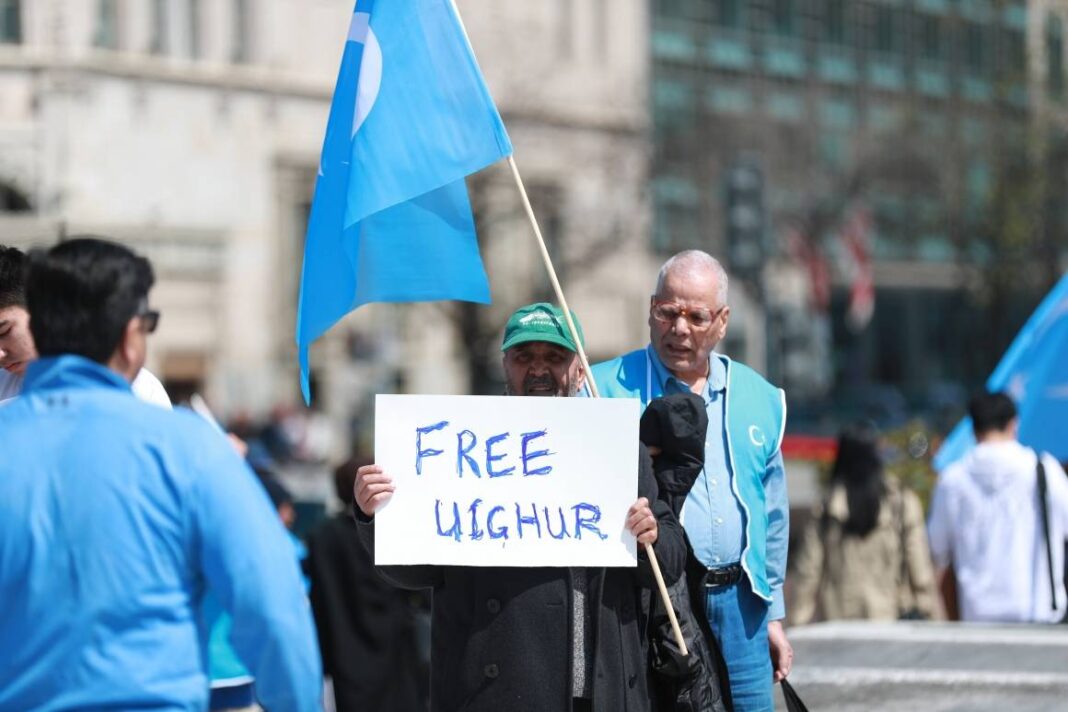This statement by a group of organizations in the Norwegian NGO Forum for Human Rights points to the precarious situation in Xinjiang, China, where Uyghurs and other Turkic minorities are victims of widespread and systematic human rights violations.
Statement
(Oslo 17 October 2022) – Norway should condemn the ongoing systematic and widespread human rights violations against Uyghurs and other Turkic minorities in Xinjiang. concluded that they may constitute crimes against humanity. Norway must ensure that China does not succeed in taking the situation in Xinjiang off the international human rights agenda.
On 17 October 2022, a hearing on the situation of the Uyghurs takes place in the Norwegian Parliament. The Norwegian government should use this as an opportunity to strengthen support and make use of available tools to address the serious human rights situation in Xinjiang.
Similar to other Chinese groups of Turkic descent, the Uyghur people of Xinjiang have long faced prejudice and persecution. Following the fall of the Soviet Union in the 1990s, Beijing launched policies of assimilation and strict police control on the pretext of fighting terrorism and secession. Chinese authorities suppressed Uyghur calls for autonomy and their religious expressions.
These policies have in recent years developed into a program of ethnic and religious persecution. More than one million Uyghurs and other Turkic minorities are held in more than 300 detention facilities, while twice as many are reportedly receiving “re-education”. Many people have experienced torture and forced labour in detention. Outside the detention facilities, Chinese authorities have imposed a pervasive system of mass surveillance, controls on movement, arbitrary arrest and enforced disappearance, cultural and religious erasure, and family separation on Turkic Muslims.
Evidence suggests that these actions of Chinese authorities constitute crimes against humanity. According to the Rome Statute of the International Criminal Court (ICC), crimes against humanity are serious specified offences that are knowingly committed as part of a widespread or systematic attack against any civilian population, being targeted against a large number of victims and according to a methodical plan. Crimes against humanity are considered among the gravest crimes under international law.
Many countries are reluctant to raise concerns about human rights violations in Xinjiang because of their economic ties with China. China’s “debt trap diplomacy” explains how the Chinese government uses loans to smaller nations for its geopolitical purposes, and put pressure on states not to criticise human rights violations. Therefore, the role of rich democratic countries in stepping up support for the Uyghurs is crucial.
Recently, the UN Human Rights Council rejected a draft decision (A/HRC/51/L.6) on the “debate on the situation of human rights in the Xinjiang Uyghur Autonomous Region, China”, by a vote of 17 in favour, 19 against and 11 abstentions.
Recommendations
Norway should, together with like-minded states:
- Condemn the ongoing systematic and widespread human rights violations against Uyghurs and other Turkic minorities in Xinjiang, and urge Chinese authorities to release those who have been unjustly detained or imprisoned
- Call on Chinese authorities to comply with their obligations under international human rights treaties
- Impose targeted sanctions together with like-minded states against Chinese officials, responsible for the most serious human rights violations
- Ensure that Norwegian companies are not engaged in trade or transportation of mass surveillance tools (malware, cameras, software, etc.) with China
- Ensure that imported products from China do not include goods, produced by the use of forced labour in Xinjiang
- State that Uyghurs, residing in third countries (especially in Arab States) should not be returned to China, where they risk detention, torture, and other serious human rights violations
- Provide asylum to those who are fleeing from repression in Xinjiang
The following organisations support the statement
- Amnesty International Norway
- Norwegian Students’ and Academics’ International Assistance Fund (SAIH)
- The Human Rights House Foundation (HRHF)
- The Norwegian Helsinki Committee (NHC)
- The Norwegian Human Rights Fund (NHRF)
- The Rafto Foundation for Human Rights
- United Nations Association of Norway

